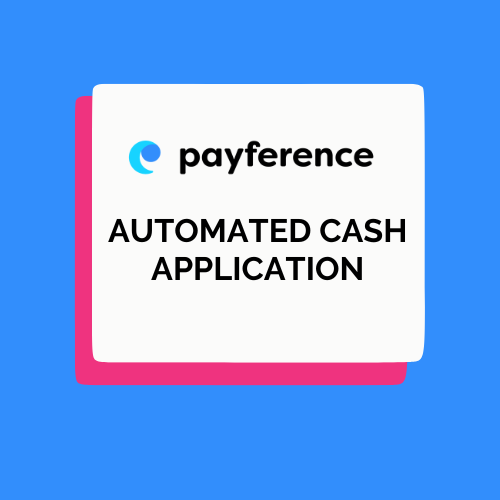Maximizing Efficiency with NetSuite's Automated Cash Application
Effective cash management is vital for businesses to maintain a healthy financial position and...

As a CFO, Controller, or Director of Finance, you know how critical cash flow management is to the success of your business. It is not only important to ensure that your customers pay on time, but it is equally important to efficiently process incoming payments. This is where automated cash application in NetSuite comes in.
NetSuite, a cloud-based ERP (Enterprise Resource Planning) solution, offers a robust cash management module that can be customized to meet the unique needs of your business. With automated cash application in NetSuite, you can streamline your financial processes, reduce manual errors, and free up your finance team to focus on strategic tasks.
Automated cash application is the process of automatically matching incoming payments to open invoices in your financial system. In other words, it is the process of reconciling incoming payments against outstanding invoices, and updating your financial records accordingly. With automated cash application, you can eliminate the need for manual intervention, reduce errors, and speed up the entire process.
Automated cash application offers several benefits to businesses, including:
Efficiency: By automating the cash application process, you can significantly reduce the time and effort required to reconcile payments against outstanding invoices. This can free up your finance team to focus on other critical tasks.
Accuracy: Automated cash application reduces the risk of manual errors, which can occur when processing payments manually. By eliminating manual intervention, you can ensure that payments are applied accurately and in a timely manner.
Cash Flow: By streamlining the cash application process, you can improve your cash flow management, allowing you to make better-informed decisions about investments, expenditures, and financing.
NetSuite's automated cash application module offers a range of features that can be tailored to meet the unique needs of your business. Here's how it works:
Payment Capture: NetSuite can automatically capture payment information from a range of sources, including lockbox services, EDI (Electronic Data Interchange), and bank statements.
Payment Matching: NetSuite uses a sophisticated matching engine to automatically match incoming payments against open invoices in your financial system. The matching engine takes into account a range of variables, including invoice number, amount, payment date, and currency.
Exception Handling: In cases where the matching engine is unable to match a payment to an open invoice, NetSuite offers a range of exception handling tools. These tools enable your finance team to quickly resolve exceptions, ensuring that payments are applied accurately.
Reporting: NetSuite offers a range of reporting tools that allow you to monitor your cash application process in real-time. With these tools, you can quickly identify any issues or bottlenecks in your cash application process, and take corrective action as needed.
Implementing automated cash application in NetSuite is a relatively straightforward process. Here's how you can get started:
Define Your Requirements: Before implementing automated cash application, it's important to define your requirements. This includes understanding your current cash application process, identifying any pain points, and determining your key objectives.
Configure NetSuite: Once you've defined your requirements, you can begin configuring NetSuite's cash application module. This involves setting up payment capture sources, configuring matching rules, and setting up exception handling workflows.
Test and Refine: After configuring NetSuite, it's important to test the system to ensure that it is working as expected. This involves reconciling a sample of payments and invoices to ensure that the matching engine is working correctly. If any issues are identified, you can refine the configuration as needed.
Train Your Team: Once NetSuite's automated cash application module is configured and tested, it's important to train your finance team on how to use the system effectively. This includes understanding how to handle exceptions, how to generate reports, and how to monitor the system in real-time.
Monitor and Optimize: After implementing automated cash application, it's important to continuously monitor and optimize the system. This involves analyzing key performance metrics, identifying areas for improvement, and making changes as needed to ensure that the system is operating at peak efficiency.
Automated cash application in NetSuite can help streamline your financial processes, reduce manual errors, and free up your finance team to focus on strategic tasks. By automating the cash application process, you can improve efficiency, accuracy, and cash flow management, allowing you to make better-informed decisions about investments, expenditures, and financing.
If you're interested in implementing automated cash application in NetSuite, we recommend working with an experienced NetSuite implementation partner who can help guide you through the process and ensure that the system is configured to meet your unique needs.
Effective cash management is vital for businesses to maintain a healthy financial position and...
Efficiency is key when you’re managing accounts receivables. On-time payments from customers are...
Efficient collections management is vital for businesses to maintain healthy cash flow and...